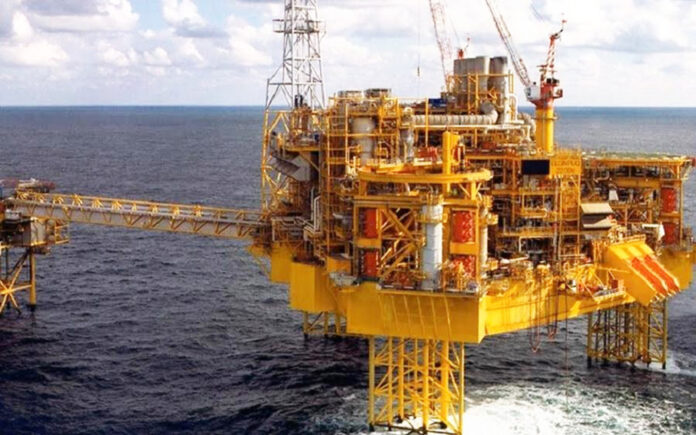Abuja planning revocation of unused oil licences for 2 decades
By Jeph Ajobaju, Chief Copy Editor
Plans are underway by Abuja to revoke oil exploration licences granted two decades ago but lying unused, the Nigerian Upstream Petroleum and Regulatory Commission (NUPRC) has warned.
NUPRC Chief Executive Officer Gbenga Komolafe, who announced the warning, said only companies with viable technical and financial backup will be allowed to retain their leases.
“Based on PIA (Petroleum Industry Act), the Commission is focused on delivering value for the nation so only firms that are technically and financially viable will keep their leases,” Komolafe said, according to Reuters.
He insisted these leases and new ones to be granted will be “subject to specific terms and conditions.”
__________________________________________________________________
Related articles:
Nigeria spent $74.38b on fuel subsidy, loses N16.25tr to oil theft
TUC says Nigeria doesn’t verify daily oil output
Fuel subsidy removal saves treasury N100b per week
__________________________________________________________________
33 licences not used since 2003
NUPRC data shows more than 60 per cent of about 53 exploration licences issued to local and foreign oil firms since 2003 have expired.
Up to 33 of the leases have expired and not renewed, including four held down by contract disputes. The leases have not been automatically revoked, but the NUPRC said it is no longer willing to let the companies hold on to leases indefinitely, per reporting by The PUNCH.
The Petroleum Industry Act (PIA) empowers the NUPRC to review the technical and financial capabilities of companies holding oil exploration leases.
Investments in oil exploration in Nigeria are now few and far between as oil majors exit onshore and shallow water assets due to rising insecurity and sabotage of oil infrastructure as well as legal disputes with host communities in the Niger Delta.
Oil and gas investment slides 74%
Investment in oil and gas dipped 74 per cent between 2014 and 2022, Komolafe had disclosed in April at the Nigeria International Energy Summit in Abuja.
He more than $27 billion invested in the sector in 2014 reduced to $6 billion in 2022 because of regional competition.
“Most of the international oil companies deprioritised Nigeria in their portfolios, leading to redirection of capital expenditure to other countries and attendant dwindling investment in Nigeria’s upstream sector,” he explained.
“This under-investment is also reflected in the country’s rig count.
“On average, Nigeria had 17 active oil rigs in 2019, representing one of the highest counts on the African continent as at then. Nigeria’s average rig count declined to 11 in 2020, seven in 2021, 10 in 2022, but recently grew to 24 in April 2023, a positive signal of new investments trickling into the country.
“This is also a reflection of investors’ acceptance of effective implementation of the Petroleum Industry Act (PIA) by the regulator.
“In contrast, other OPEC member countries, such as Iran, Iraq, Algeria, Libya, Angola, had 117, 62, 31, 12 and nine active rigs, respectively, as of February 2023, as against Nigeria’s rig count, which stood at 13.”
Attracting more investment
Komolafe stressed the need for Nigeria to leverage on higher oil prices by doing all that is necessary to attract more investments and revive the upstream sector.
He also stressed the need for oil and gas producers in Africa to embrace the reality of green transition and take strategic position to utilise opportunities presented by the unfolding era.
And he sought climate action initiatives to reduce emissions reduction while ensuring Nigeria does not lose out in opportunities created by increasing demand for credit in Voluntary Carbon Markets.
“In response to dynamics of the energy transition and the global footprint, the NUPRC, as the industry regulator, has embarked on development of a regulatory framework for carbon-pricing system, to make businesses pay for their emissions and incentivise emission reductions through carbon credits.
“Accordingly, the Commission has risen to the occasion by establishing a new department, ‘Energy Transition and Carbon Monetisation’, saddled with regulation of the oil and gas carbon market and we will soon revert to the industry on proposed actions and measures in this regard.”
Komolafe disclosed Nigeria’s oil reserves reduced to 36.966 billion barrels in January 2023 due to a lack of investment in exploration.
Gas reserves, he added, stand at 208.83 trillion standard cubic feet.











